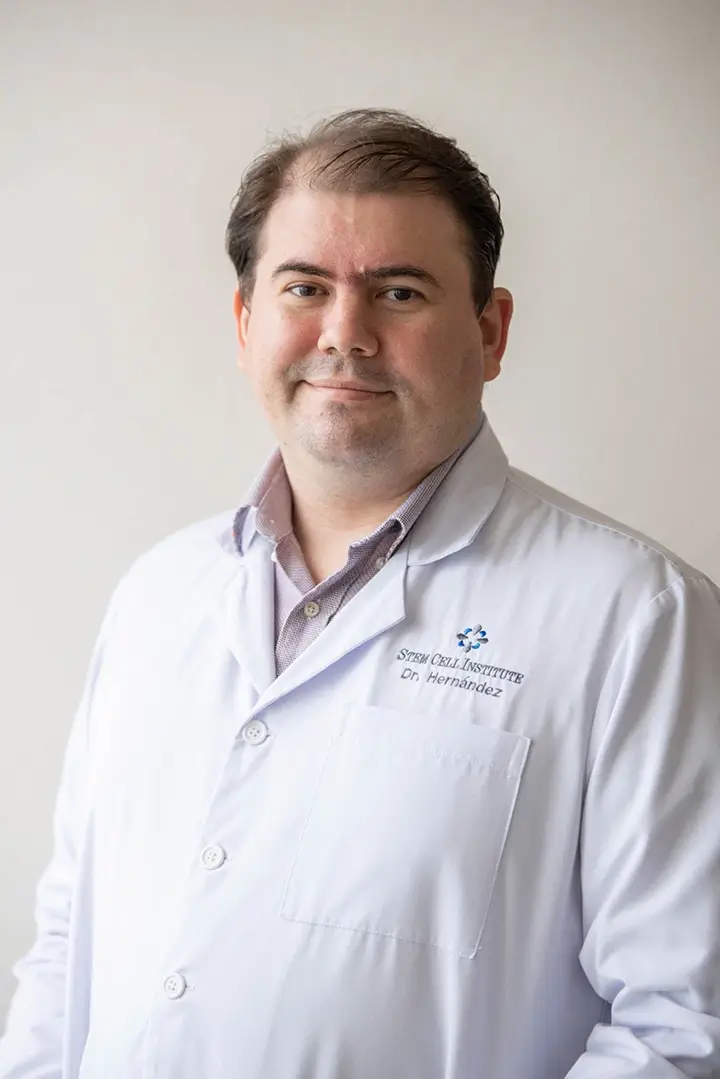After suffering a stroke on March 25th, 61-year-old Roland “Bud” Henrich arrived at the hospital too late to be given tPA (tissue plasminogen activator), the only previously existing treatment for ischemic stroke. He therefore became the first person to be enrolled in a clinical trial in which autologous adult stem cells are used for the treatment of stroke.
Nine more patients will be enrolled in the FDA-approved, NIH (National Institutes of Health) funded Phase I clinical trial, all of whom will be treated within 24 to 72 hours after showing initial stroke symptoms.
According to Dr. Sean Savitz, the lead investigator of the clinical trial and an assistant professor of neurology at the UT-Houston Medical School, “It’s still very early in this safety study, but this could be an exciting new therapeutic approach for people who have just suffered a stroke. Animal studies have shown that when you administer stem cells after stroke, the cells enhance the healing. We know that stem cells have some kind of guidance system and migrate to the area of injury. They’re not making new brain cells but they may be enhancing the repair processes and reducing inflammatory damage.”
In the study, autologous (in which the donor and recipient are the same person) mesenchymal stem cells are derived from each patient’s own bone marrow, and then readministered intravenously. Because the stem cells are autologous, there is no risk of immune rejection.
Approximately 800,000 people per year suffer a stroke in the U.S. alone, where stroke ranks as the third leading cause of death, after heart disease and cancer. Approximately one person every 40 seconds suffers a stroke, and approximately one person every 3 minutes dies from a stroke.
As Dr. Savitz explains, “This will be our first attempt to look at the safety of using stem cells in acute stroke patients. There’s a lot of promise behind this but we want to do it in a slow, rigorous fashion. Because we are injecting them intravenously, these cells can disperse to lots of different parts of the body and that’s why we’re looking at safety parameters.”
Already Mr. Heinrich is showing significant improvement. When he first arrived at the hospital, he was unable to speak and had partial paralysis on the right side of his body. After less than two weeks of hospitalization and rehabilitation following the stem cell therapy, not only was he able to walk and climb stairs without assistance, but he also began to speak his first words and phrases again.
According to Dr. James Grotta, chairman of the Department of Neurology at the UT-Houston Medical School, “This study is the critical first step in translating laboratory work with stem cells into benefit for patients. If effective, this treatment could be helpful to a huge segment of stroke patients to reduce their disability. We are fortunate here at UT-Houston and the Texas Medical Center to have the resources needed to carry out this work, and to have attracted someone of Dr. Savitz’s caliber to lead this study.”
The study is open to patients who show symptoms of an immediate stroke and who are either admitted to the Emergency Center at Memorial Hermann-Texas Medical Center or through the UT Stroke Team.
Since 2006, the UT-Houston Medical School has also been conducting a similar study in which autologous adult stem cells are used in the treatment of children with acute brain injuries, at Children’s Memorial Hermann Hospital.
One of the leading clinical and research organizations in the world, the University of Texas Health Science Center at Houston was established in 1972 by the UT System Board of Regents and the Texas State Legislature. The Center brings together the Dental Branch, the Graduate School of Biomedical Sciences, the Medical School, the School of Public Health, the School of Nursing, the School of Health Information Sciences, the UT Harris County Psychiatric Center, and the Brown Foundation Institute of Molecular Medicine for the Prevention of Human Diseases. As of 2008, the UT Health Sciences Center at Houston had received 220 NIH grants, thereby ranking 60th out of 535 in the NIH funding of domestic institutes of higher education. The Institute of Molecular Medicine is directed by Ferid Murad, M.D., Ph.D., who also created the new departments of integrative biology, pharmacology and physiology at UT and who coshared the 1998 Nobel Prize in Physiology or Medicine for his work with nitroglycerine and signaling molecules in the cardiovascular system.

